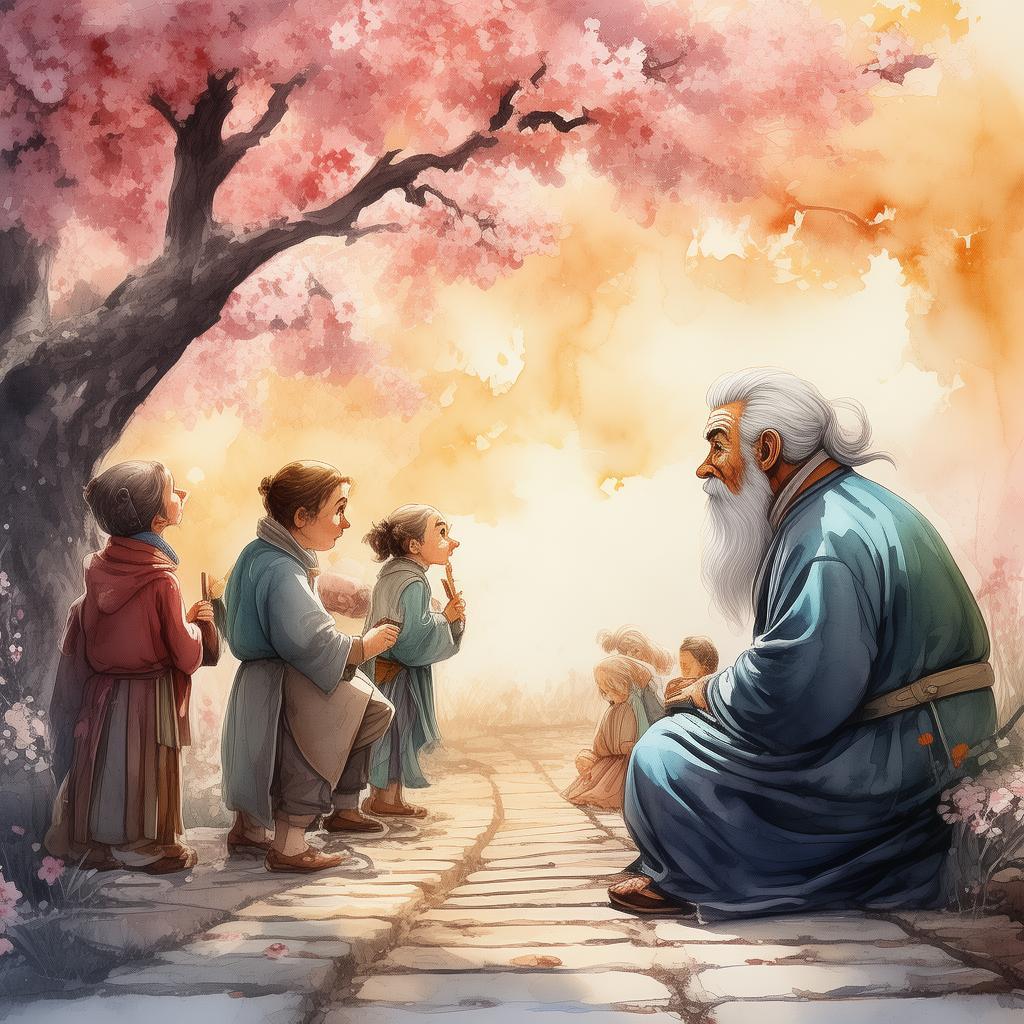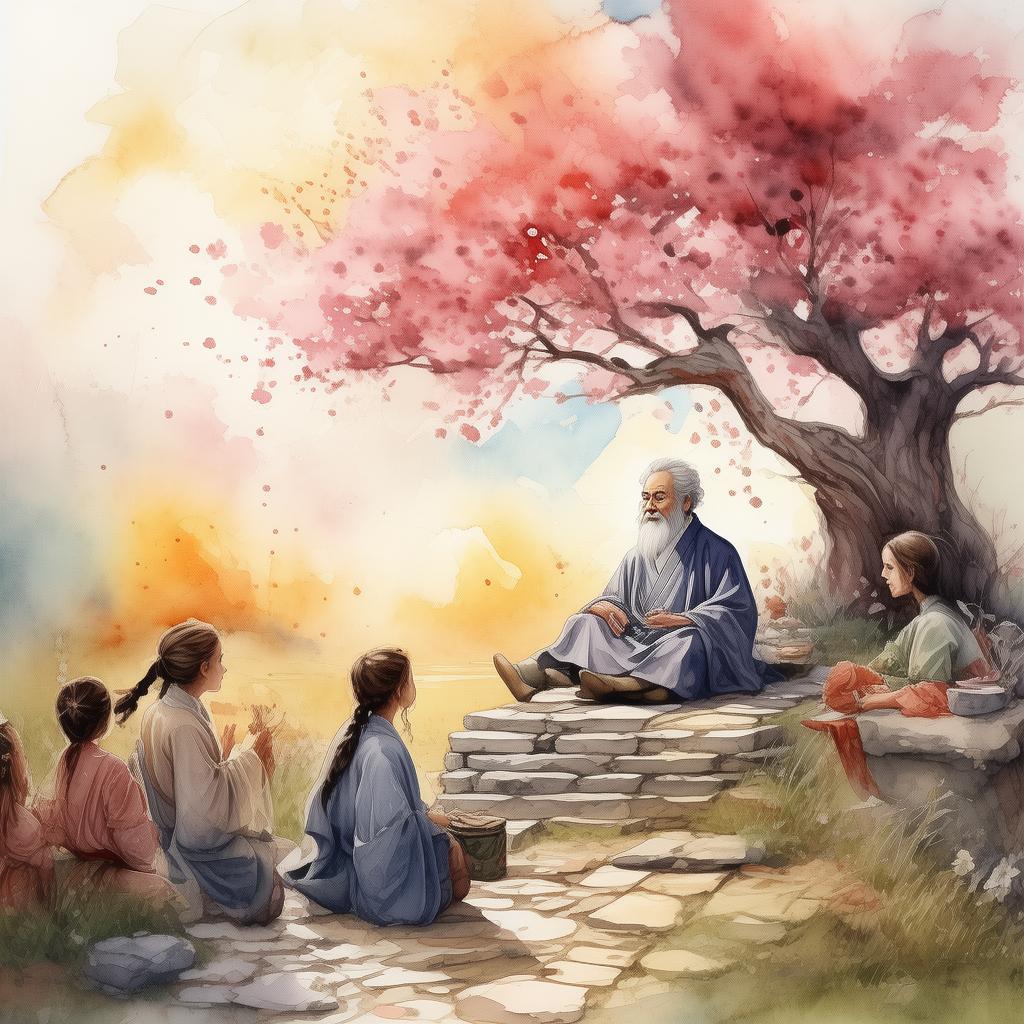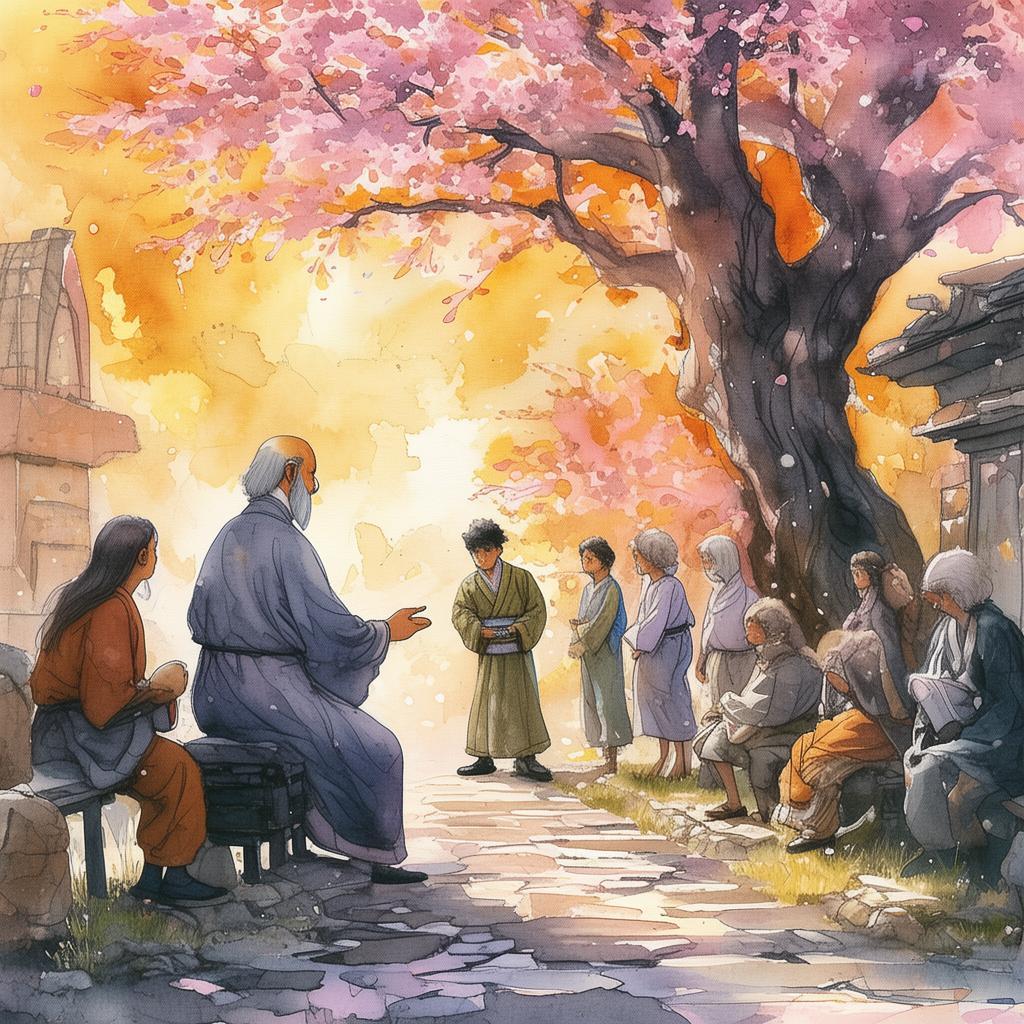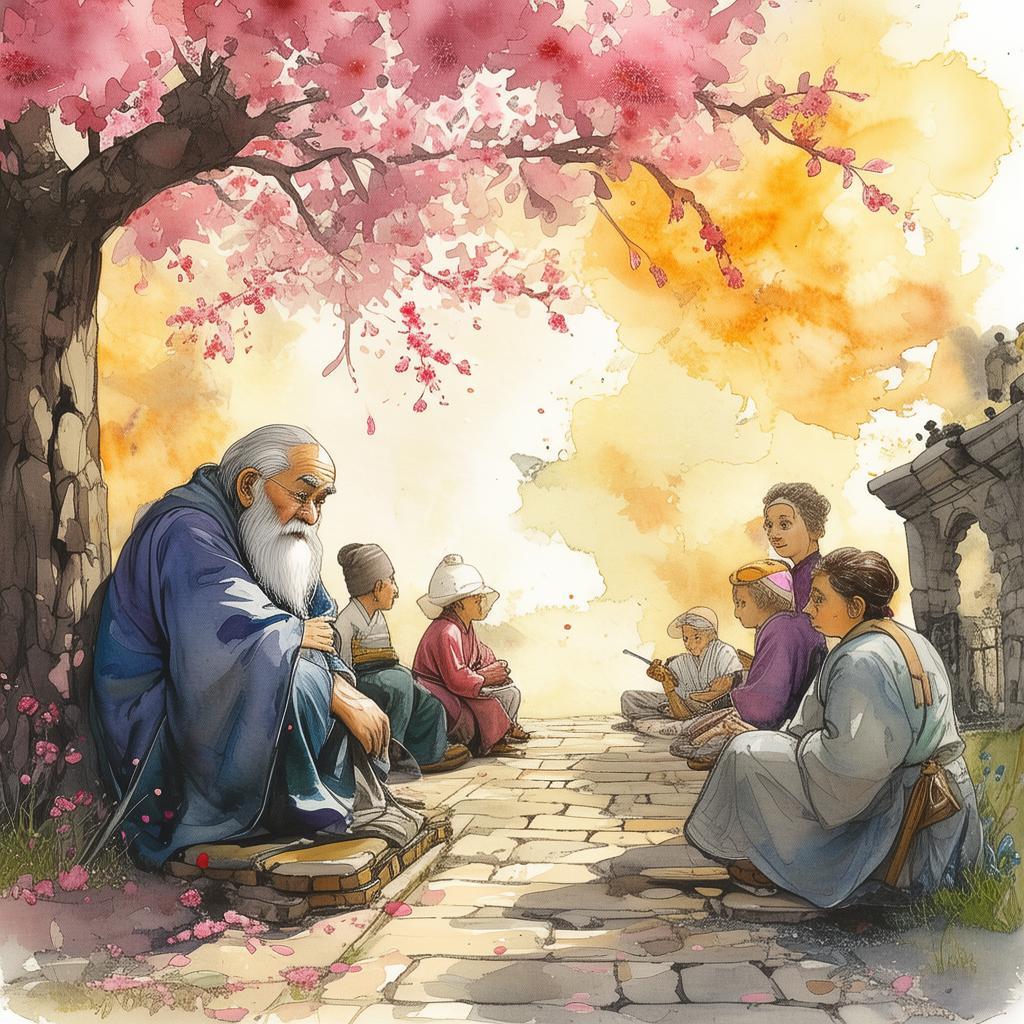Return to Virtue: The Tyrant's Redemption
In the ancient land of Zhenli, there once reigned a tyrant named Wang Zhen. Known for his harsh rule and ruthless ambition, Wang Zhen had become the pariah of the realm. His name was a whisper of dread, a specter that haunted the dreams of his subjects. Yet, amidst the shadows of his tyranny, there lay a glimmer of something more profound—a heart that once beat with the rhythm of virtue.
The tale begins with Wang Zhen standing atop the throne of his grand palace, his gaze piercing through the vast expanse of his dominion. The throne room was a cavernous hall, echoing with the whispers of courtiers who dared not breathe their true thoughts. His right-hand man, Feng, approached him with a solemn expression.
"Feng, you have served me well. Yet, I have grown weary of this life. Tell me, what is the essence of power?" Wang Zhen's voice was a deep rumble, the kind that could shake the very foundations of his kingdom.
Feng, a man of great intellect, bowed deeply. "Majesty, power is the ability to influence others, to shape the world according to one's will. It is not merely the possession of wealth or titles, but the wisdom to wield them justly."
Wang Zhen nodded, his mind racing. "And what is virtue, Feng?"
Feng paused, considering his words. "Virtue is the inner strength to do what is right, even when it is difficult. It is compassion, integrity, and humility."
Wang Zhen's face twisted into a wry smile. "I have strayed far from these virtues, Feng. Tell me, is it possible for a man like me to return to the path of virtue?"
Feng bowed again, his eyes reflecting a glimmer of hope. "With determination and the courage to face one's inner demons, anything is possible, Majesty."
And so, Wang Zhen embarked on a journey of redemption, a quest to return to the man he once was, a man of virtue and honor. He was accompanied by Feng, who, despite his loyalty to the throne, harbored a secret hope that his master might one day find peace.
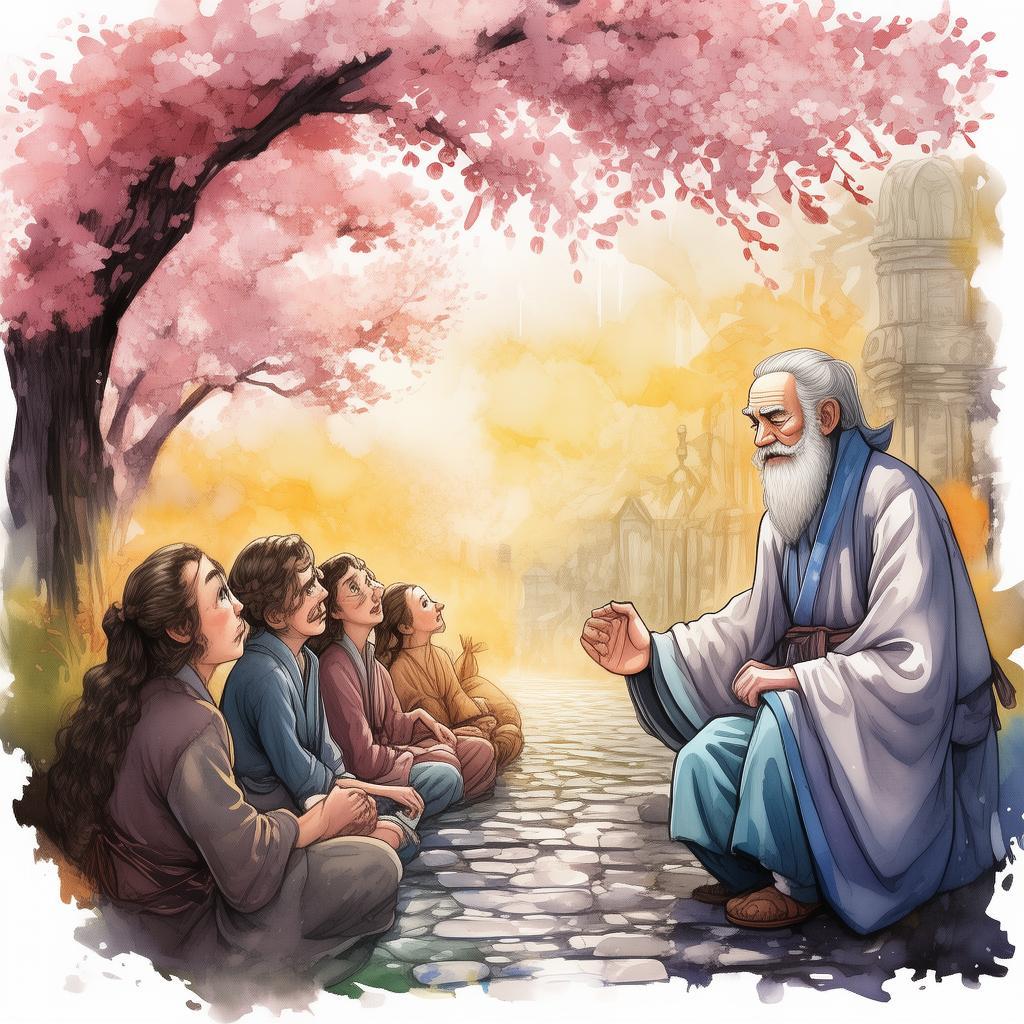
The first test of Wang Zhen's journey came in the form of a drought that ravaged the land. The crops withered, the rivers dried up, and the people turned to him, their ruler, for succor. Instead of heeding their cries, Wang Zhen had ordered his guards to suppress any signs of rebellion. It was only when Feng pleaded with him that Wang Zhen saw the error of his ways.
"I will do everything in my power to end this drought," Wang Zhen declared, his voice filled with newfound resolve. "And I will make it right by the people who have suffered under my rule."
He issued decrees to repair the irrigation systems, to plant new crops, and to seek divine intervention through fasting and prayer. The people, weary of their suffering, began to see a change in their ruler. They whispered among themselves, "Is it possible that the tyrant has returned to virtue?"
But the journey was fraught with obstacles. The drought did not lift immediately, and some of the courtiers, seeing their chance to regain favor with the ruler, began to plot against Wang Zhen. One night, as Wang Zhen sat alone in his quarters, a shadowy figure slipped into his room, a knife in hand.
"Wang Zhen, you have forsaken your people. Your time is up," the assassin hissed.
Wang Zhen's hand reached for the hilt of his sword, but it was Feng who stepped forward, his own sword clutched tightly. "I will not let you harm him," Feng said, his eyes gleaming with a fierce determination.
A brief scuffle ensued, and the assassin was overpowered. Wang Zhen, bleeding from a gash on his arm, looked at Feng with gratitude. "Feng, you have risked your life for me. Thank you."
Feng's expression softened. "Majesty, I serve you not only as a loyal servant but as a friend."
As the days passed, the drought began to lift. The rains returned, and the crops grew lush once more. The people celebrated, their faith in Wang Zhen restored. They saw in him a man who had found the strength to change, to return to the path of virtue.
Yet, Wang Zhen knew that his redemption was not complete. He had to face the past, to confront the shadows of his tyranny. He called for the prisoners he had wronged and set them free, offering them a chance to rebuild their lives.
"I have done many things that are not worthy of your trust," Wang Zhen said, his voice trembling. "I ask for your forgiveness, and I promise to be a better ruler, a ruler who serves his people with compassion and honor."
The prisoners, touched by his sincerity, nodded their heads in acceptance. They understood that Wang Zhen was not the same man who had once ruled with an iron fist. He was a sinner who had found redemption.
And so, the kingdom of Zhenli was reborn. The people, once enslaved by fear, now lived in a land of hope. Wang Zhen, the tyrant who had returned to virtue, had become a beacon of light, a reminder that even the darkest souls could find their way back to the light.
In the end, Wang Zhen's journey of redemption was not just for himself, but for all those who had suffered under his rule. It was a testament to the enduring power of virtue, and a story that would be told for generations to come.
✨ Original Statement ✨
All articles published on this website (including but not limited to text, images, videos, and other content) are original or authorized for reposting and are protected by relevant laws. Without the explicit written permission of this website, no individual or organization may copy, modify, repost, or use the content for commercial purposes.
If you need to quote or cooperate, please contact this site for authorization. We reserve the right to pursue legal responsibility for any unauthorized use.
Hereby declared.
